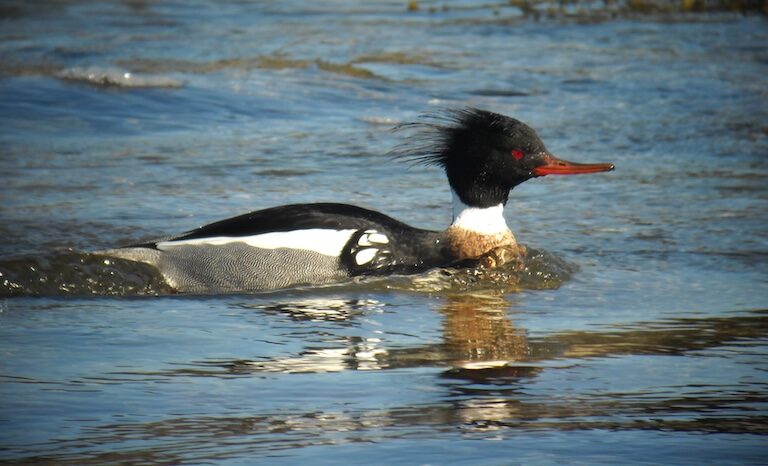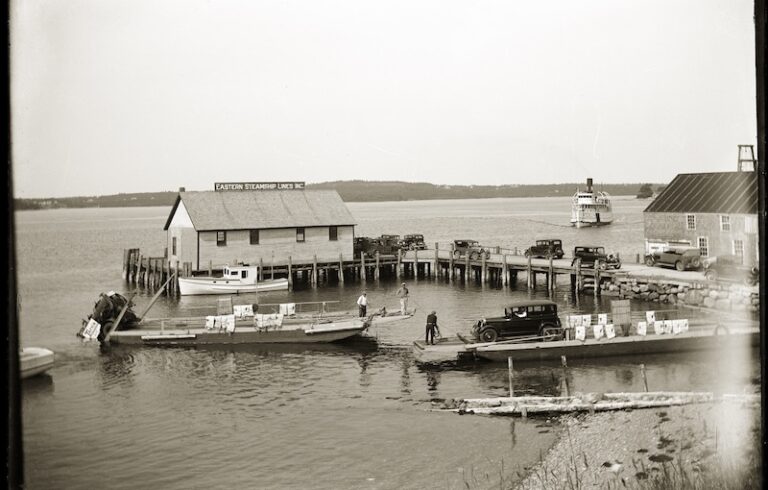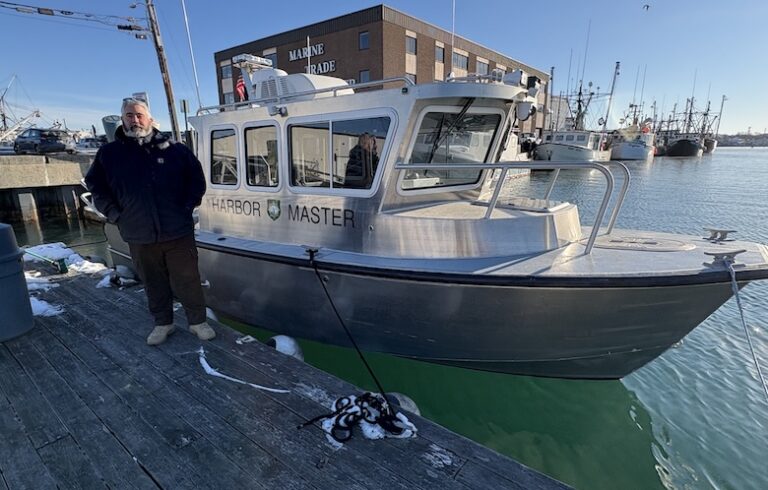Kelly Morgan moved from California to Maine to work on an oyster farm. By way of the Maine Aquaculture Apprenticeship Program, she landed a job on the New Meadows River in Brunswick farming oysters with Bombazine Oyster Company.
Nearing the end of her apprenticeship, she’s already asking her mentors, “How do I grow in this industry?”
The program pairs applicants with aquaculture farms—primarily oyster and mussel farms—along the Maine coast for a hands-on learning experience that helps participants, farms, and Maine’s coastal economy. A collaboration of the Maine Aquaculture Association, Gulf of Maine Research Institute, and Southern Maine Community College, with investment from various Maine nonprofits, the program fills a critical shortfall in skilled, qualified, and dependable workers.
“That gap that we see on farms is in middle management,” says Christian Brayden, project manager at Maine Aquaculture Association. “On small Maine farms, you have the owner, and you have farm hands, but often they lack crew chiefs and farm managers, people with experience and knowledge to run a farm. Our apprentices are moving quickly from farm hands to middle management.”
Brayden has been a driving force for the program since its inception in 2018. The program operates on a $130,000 annual budget, funded by the USDA National Institute for Food and Agriculture, FocusMaine, Jobs for the Future Foundation, and others.
The apprenticeship includes 2,000 hours of paid work on the farm and 144 hours of classroom time, which takes one to two years to complete. Farms must provide nine months of employment per year, which can be a hurdle for some of the more seasonal businesses.
The classroom portion is primarily designed and conducted by GMRI’s aquaculture program manager, Carissa Maurin. Maurin notes that even though there is a fair amount of coursework—including basic biology—the program does not require a college education.
Applicants with marine science backgrounds are valued, but the program also seeks applicants with skills including electrical and mechanical experience, carpentry, and plumbing.

Experience working on the water is an added advantage, but the program teaches basic skiff-operating skills and knot tying. One of the most popular parts of the hands-on coursework is the Yamaha motor maintenance and repair course.
The program even provides boots, bibs, and a life vest to apprentices, an expense that can top $500 and be a barrier to entry for some.
Michael Scannel, formerly a sternman on a lobster boat, spoke about his transition to aquaculture during a panel discussion at an MAA event on May 1 at O’Maine Studios in Portland.
“When I started off lobstering, I watched a lot of the changes going on in the industry,” he said. “I was looking for a way to diversify, and it seemed like aquaculture was a no-brainer, a way to provide another opportunity to be on the water and stay in Maine.”
Young lobstermen like Scannel are part of the target audience of MAA’s new educational documentary about the apprenticeship program. A teaser for the film was screened at the Maine Fishermen’s Forum earlier this year and the film premiered at the May 1 event.
Trixie Betz, outreach and development specialist at MAA, says interest and enthusiasm for the program has been growing substantially, and more farms and apprentices are applying. MAA produced the documentary film because it needed a way to explain the program, highlight the gritty nature of working on a year-round aquaculture farm, and demonstrate that a career in aquaculture is achievable and yields results.
Betz also hopes the film educates those outside the sector and helps demystify aquaculture in Maine.
“Farms are currently growing. They are applying for more acreage,” she says. “A lot of these farms that started five to ten years ago are starting to turn a real profit. So along with this growth comes a need for a growth of workforce.”
Housing has been one obstacle to that growth.
“A couple farms this year, had to drop out of the program,” Brayden says. “There are parts of the state that apprentices weren’t willing to move to. But the most common reason was that they weren’t able to find housing,” especially in the Mount Desert Island region.
Scannel, the former sternman, is completing his apprenticeship but is already a farm manager at Madeleine Point Oyster Farms in Yarmouth. Kelly Morgan, who is wrapping up her apprenticeship at Bombazine Oyster Company, is working directly with GMRI’s Carissa Maurin to chart her future in the industry.
With a background in education and research, and now with hands-on experience working on the water, Morgan wants to apply what she’s learned to support the aquaculture industry. She may even want to start her own business. “A year ago,” she said with a laugh,
“I’m not even sure I knew what an LLC was.”
Learn more at maineaqua.org/tending-the-tides.





